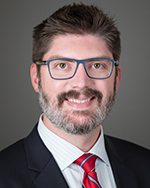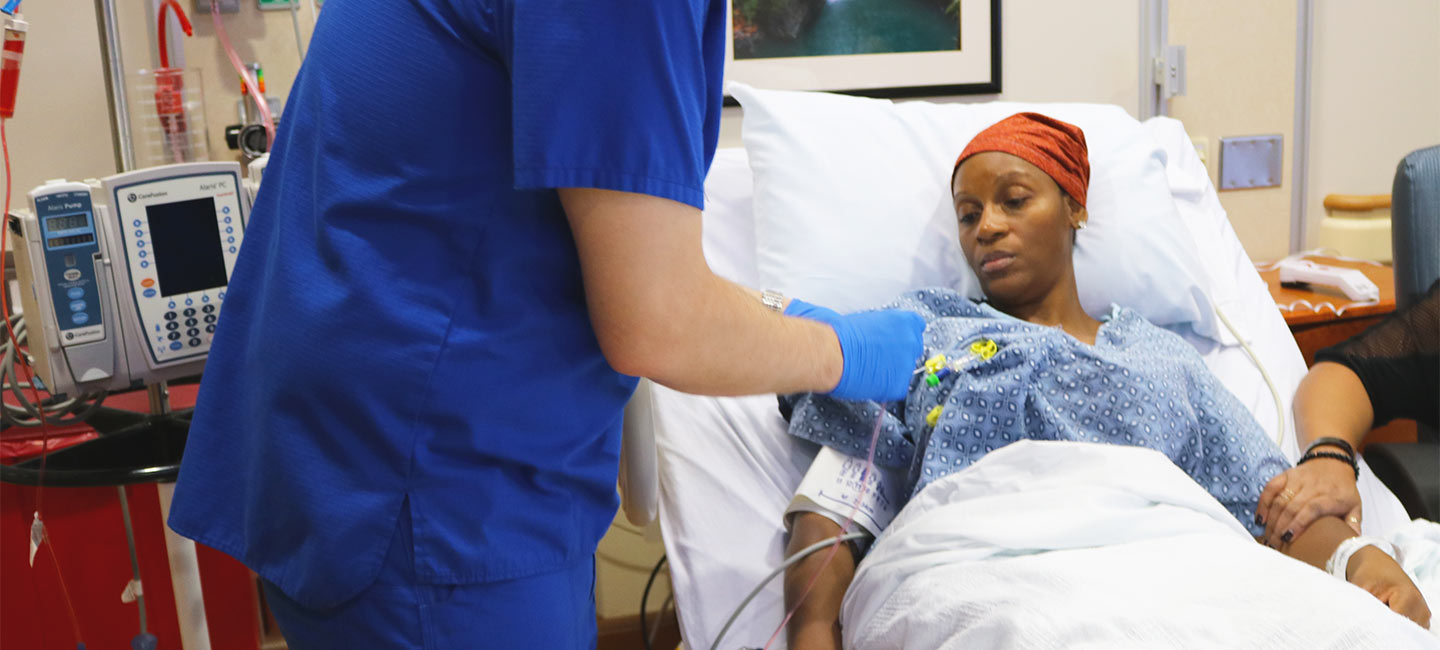Moffitt Study Shows Benefit to Giving CAR T-cell Therapy to Patients Sooner
Chimeric antigen receptor T-cell therapy or CAR T has been a breakthrough treatment for patients with certain types of blood cancers. The cellular therapy uses a patient’s own immune cells that are reengineered in a lab to better seek out and destroy cancer cells. This single infusion treatment is approved for patients who have relapsed after two or more types of therapy. But studies are underway to determine if CAR T can be given sooner.

Dr. Frederick Locke, Vice Chair, Blood and Marrow Transplant and Cellular Immunotherapy Department
The ZUMA-7 clinical trial led by Dr. Frederick Locke, vice chair of Moffitt Cancer Center’s Blood and Marrow Transplant and Cellular Immunotherapy Department, is testing this approach. The nationwide, multicenter phase 3 trial evaluated the CAR T product axicabtagene ciloleucel (Yescarta) as a second-line therapy for patients with diffuse large B-cell lymphoma. In total, 359 patients were enrolled and randomized into two arms: Yescarta or standard of care. Patients in the Yescarta arm underwent apheresis to have CAR T cells produced for therapy. Those in the standard of care arm were given chemotherapy with the goal of getting them well enough for an autologous stem cell transplant.
“We found that over 90% of patients who were randomized to the CAR T arm actually received Yescarta, a potentially curable treatment for their lymphoma. Whereas alternatively, only about one-third of patients who were randomized to the standard of care eventually received a definitive stem cell transplant,” said Locke.
The results of the ZUMA-7 trial are being presented at the American Society of Hematology annual meeting in Atlanta and were published by the New England Journal of Medicine. The two-year follow-up data shows that median event-free survival, meaning no cancer progression or need for additional treatment, was 8.3 months in the Yescarta arm compared to two months with standard of care. Also after 24 months, the estimates for ongoing remission with no need for additional therapy were 41% of those receiving Yescarta and 16% of those receiving standard of care.
“The ZUMA-7 clinical trial results are truly remarkable and could lead to a paradigm shift in the way that we treat patients in the second-line setting for diffuse large B-cell lymphoma. Our goal is to give our patients the best possible treatment and quality of life. By using CAR T as a second-line therapy, we can reduce exposure to toxic chemotherapy agents and provide better outcomes and a quicker recovery,” said Locke.



